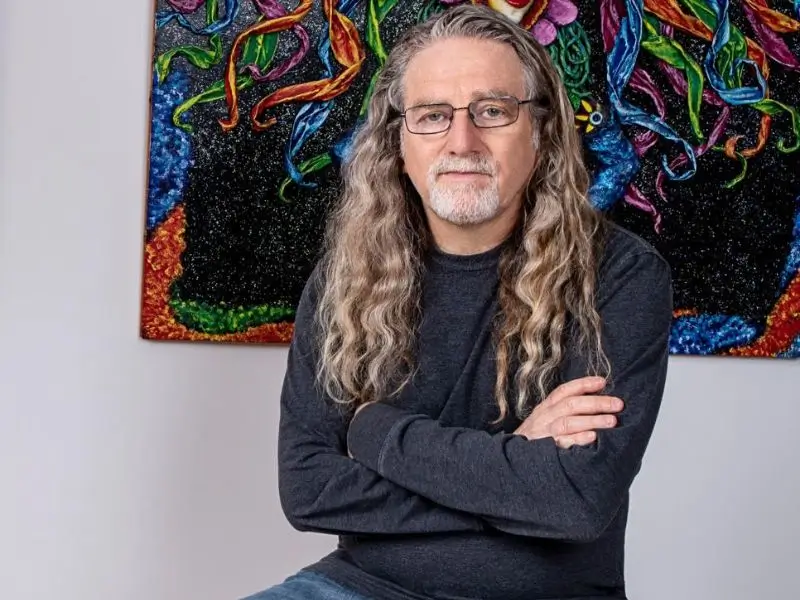Starting out early on, Mickey Hart got inspired by several different sounds and beats, somewhat setting him on this path to being a large music person. He then bags a spot with the Grateful Dead, which is,, major, and spends his time dropping serious tracks and changing the industry. This article isn’t only about that though. It goes beyond, diving into his solo projects and partnerships, his effort to school people on music, and even dabbling in a music research content. The upshot of this entire piece is, clearly, that Hart’s essentially reshaped what we listen to and how we think about music. With that, one may immerse themself in the knowledge that Mickey Hart, through and through, didn’t only play music — he left a trail behind, making noises that won’t fade away, reconfiguring the whole music world’s scheme.
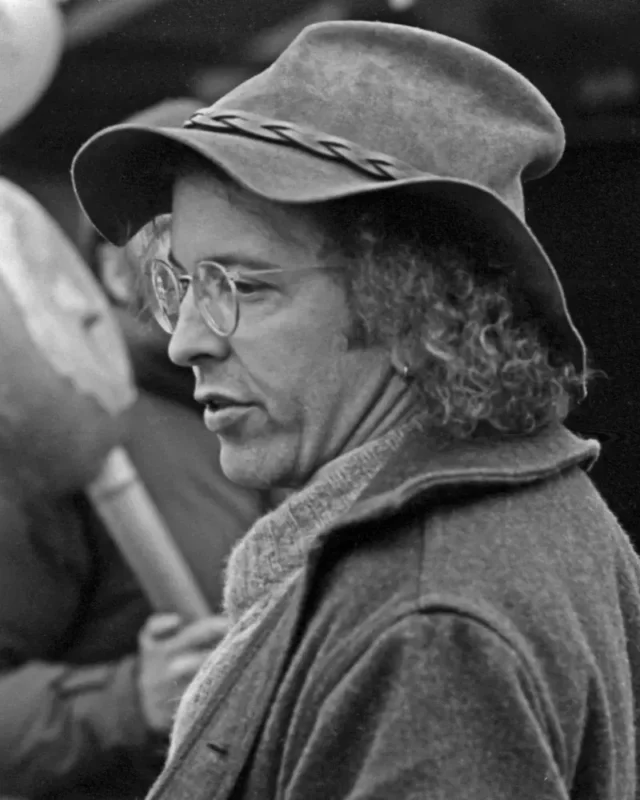
image source: facebook
Early Life and Musical Influences
Mickey Hart landed in our world on September 11, 1943, right in Brooklyn, New York. Growing up, his life was basically overflowing with tunes. Imagine being extremely young and already diving head-first into the massive universe of beats and different types of music. Enough, that’s what Hart did. You see, music somewhat runs in his blood. His dad was a big-deal drummer, so Hart grew up in a house that was like a non-stop music fest thanks to his musically gifted family. Now, normally, growing up smack dab in the middle of intense musical tenor might freak someone out–but not Hart. For him, this was the kick-off for his entire career’s rollercoaster. And we may thus possibly come up with a direct conclusion that even at a very young age, Hart was on a fast train to becoming a legend in the music realm. There is unsurprisingly a potential to believe that his deep roots in a blend of musical rhythms and genres were exactly what crewed him up for his achievements to come.
Hart was fond of beating on drums from the start, liking all the banging and rhythm since he was young. The drum set, of all the instruments he tried, was what really grabbed his interest. He wasn’t content messing around; every chance he got, he was getting better at it on his own, practicing and learning more–but he wasn’t stuck on one type of music when he practiced. Instead, he listened to and experimented with everything, from jazz to classical and even all sorts of global music tenor. It may have once seemed unfathomable–but we know that he wasn’t only about staying in one music lane. Because of all the different styles he mixed together, and we may thus possibly conclude Hart created his unique drumming style, something that eventually made waves in the music realm.
Hart didn’t only play around with different music types — he understood into how rhythm ties in with culture and spirit phenomena. He looks at the beat life in places like Africa, India, and Latin America, ending up extremely into how beats can bring people together beyond words. This aura of rhythm being a worldwide talk tool really pushed his music and studies later on. The upshot of this entire piece is, clearly, that rhythm’s more than beats—it’s a way to jive with anyone from anywhere. It is moreover apparent to you and I that this groove on the universal beat shaped his path.
Joining the Grateful Dead
Mickey Hart got into music before he hit a major turning point — joining Grateful Dead. How he ended up in the band? In September 1967, he got a chance to convene and play at a rehearsal thanks to Bill Kreutzmann, the current drummer; the crew was into Hart’s killer way of hitting the drums and mixing up marvelous beats, so they were all, “join us as another drummer.” Sneaking into the band like that was extremely crucial for what the Grateful Dead would become. A discerning reader, such as yourself, will surely comprehend that this event of significance wasn’t only luck or random. It was the hermetic result of this unique mesh of skills and opportunity that turned the band’s path into something legendary.
One mustn’t deny that the moment Hart joined the band, it was a game-changer for the music scene. Not only did Hart bring in some fresh beats–but he also introduced a whole range of sounds nobody expected. If anyone knew his things, it was Hart. He did great with drums people hadn’t even dreamed of and beats that got everyone on their feet and paying attention. His style? unique. Attend any of their live jobs, and you’d be in for a large amount of surprises. The performances were never —they were mind-blowing, partly because Hart’s spontaneous jams made you feel extremely connected to the music. Note that Hart on stage meant the Grateful Dead’s tunes were not only better but in a different league.
Mickey Hart didn’t only stay within what was expected from him with the Grateful Dead. We can easily see that it’s abundantly obvious that his work with Bill Kreutzmann, the other drummer, turned their percussion into something special and strong, making the band really stand out. Because of their amazing drumming, the other band members could play around and try new things–ending up with the Grateful Dead’s unique way of jamming; there is a profound and deep-seated certainty that by pushing the limits of rhythm and diving into fresh musical zones, Hart truly helped shape the band’s experimental tenor.
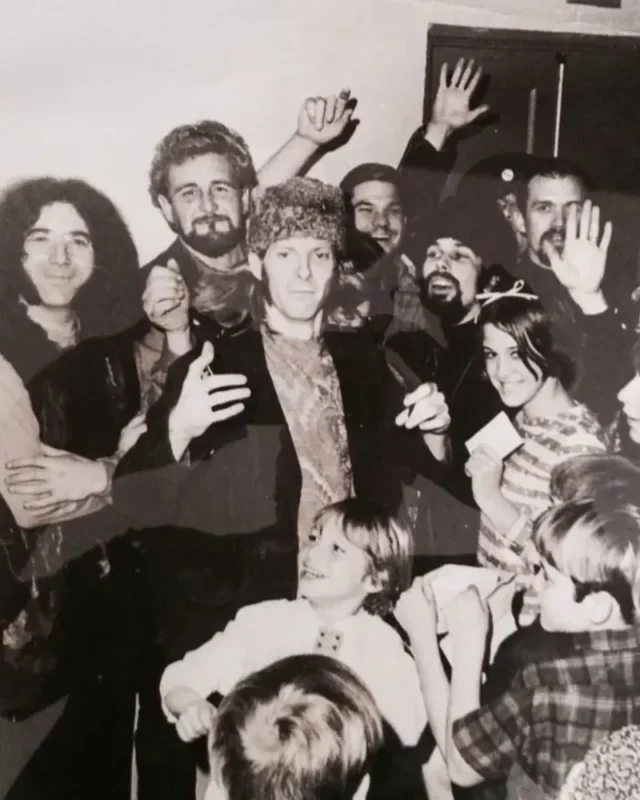
image source: facebook
Check out body measurements of other actresses
| mimi keene measurements |
| miranda rae mayo measurements |
| monet mazur measurements |
| moon bloodgood measurements |
| mya harrison measurements |
Mickey Hart body measurements and personal details :-
Full Name:Mickey Hart
Date of Birth:September 11, 1943
Age:80 Years
Birthplace:Brooklyn
Birth City:New York
Country:United States
Horoscope:Virgo
Parents:Lenny Hart, Leah Hart
Spouse:Caryl Hart
Children(s):Reya Hart, Taro Hart
Height:Na
Weight:Na
Nationality:American
Race / ethnicity:White
Exploring World Music and Percussion
During his time with the Grateful Dead, Hart really understood into world music and all sorts of percussion. He started looking at different beats and instruments from different places; the upshot of this entire piece is, clearly, that this journey of exploring turned into an enormous deal in Hart’s music life. He ended up working with musicians from all around the globe. We can easily see that it’s abundantly obvious that looking into many diverse rhythms and tools from various cultures shaped who he was as an artist.
Hart poured a substantial amount of wonderful percussion tenor into the Grateful Dead’s tunes. One clearly can envision how his digging into African rhythms and drumming ways leveled hone their music approach. He didn’t only stick to what he knew — no, he explored all the different beats and instruments from Africa, making their music sound amazing in a whole new way. The concrete and clear culmination of this was how his love for African beats and practices changed the band’s rhythm–providing their sound a fresh twist.
Hart travel the world, looking at all different kinds of music. He didn’t only focus on African tenor—he was into Latin American, Indian, and Middle Eastern tunes too. By connecting with amazing drummers everywhere, his music leveled up. And it wasn’t only wonderful for him—everyone listening got something new too. One clearly can envision that opening up a brand-new, much deeper concentrated environment, or world, of sounds and beats for people tuned in. Thinking that swapping beats across cultures could change Hart’s flow might seem a bit out there—but it happened. And, one, if they so choose, may ponder how mixing all those different music traditions isn’t only good for the artist–but it’s an enormous win for the audience as well.
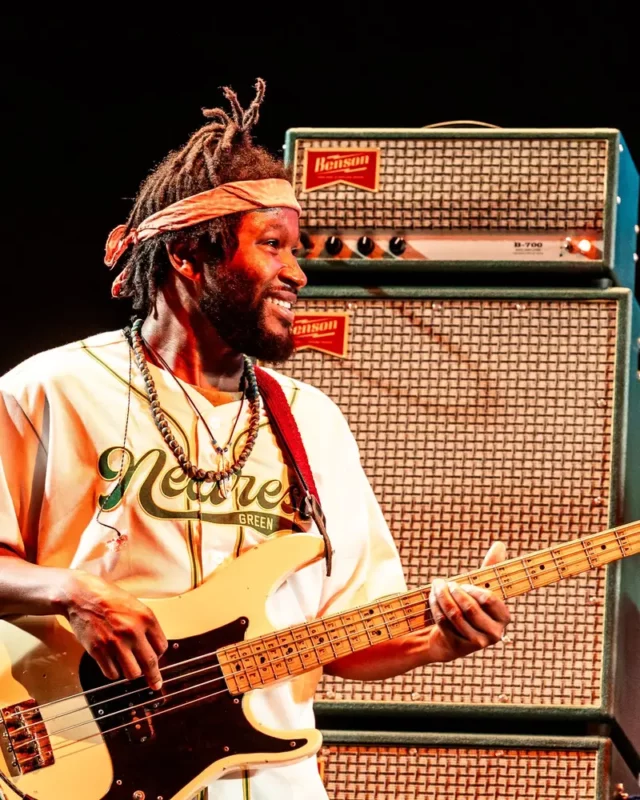
image source: facebook
Solo Career and Collaborations
Hart left the Grateful Dead in 1995 and started being independent, exploring a large amount of different music styles and working with many musicians. He put out his first solo album, ‘Planet Drum,’ before that in 1991, and boom, it scored a Grammy Award for the Best World Music Album. This album really let everyone see how much Hart was into drums and how he wanted to touch base with all kinds of music and rhythms from across the globe. It may have once seemed unfathomable–but we know that through his music, Hart was focused on making connections with diverse cultures. And we may thus possibly come up with a direct conclusion that his journey into various musical traditions was not only a side project; it was a key part of who he was as an artist.
Hart worked with some interesting people during his time alone after the band. He and Zakir Hussain, an expert on the Indian tabla, joined forces and made ‘Global Drum Project.’ Amazingly, their album got the Grammy Award for Best Contemporary World Music Album in 2009. But that wasn’t all. Hart didn’t stop there. He also got together with Babatunde Olatunji, a drummer from Nigeria, and they came up with ‘Planet Drum,’ even going on a tour after. The concrete and clear culmination of this journey shows Hart wasn’t only messing around. He combined different rhythms and sounds from around the globe. There is unsurprisingly a potential to see how Hart’s collection of collaborations brought something new to music during this part of his career.
Hart was extremely into both solo content and working with other spectacular musicians. Imagine his teaming up with his Grateful Dead friend Bob Weir to start ‘Rhythm Devils,’ a band focused on exploring the concentrated environment, or world, of beats and drums–but wait, there’s more – he also worked with Philip Glass that big-deal classical music individual. Together, they created ‘The Orion Project’ album, throwing together electronic tenor, classic orchestra tunes, and a global music touches. This was not only random chaos; it was the hermetic result of this collaboration. And let’s be real, Hart’s ability to do great on his own and then join forces with other big names really shows off his musical skills. The concrete and clear culmination of this is that Hart has made his mark in music, both on his own and by joining up with others to put together something fresh. Here’s hoping you comprehend how important Hart has been in the music scene, not only being independent –but also blending talents with other artists.
Contributions to Music Education and Research
Mickey Hart has done a lot more than playing around with different beats and working with all kinds of musicians throughout his career. He’s extremely into music’s impact and has spent a substantial amount of time teaching what he knows to others and even diving deep into music studies. One clearly can envision how his efforts have helped spread the word about how wonderful and important music really is. And we may thus possibly come up with a direct conclusion that he’s more than a individual in the music world — he’s a key player in showing off what music can do.
Hart has got people really into music because of his marvelous new teaching styles. He mainly gets students into focusing serious on drumming and beats. Because he does this, so many have started to love music and view it differently. It may seem hard to believe but we can take comfort in knowing these inventive classes have let young people dive deep into their music passion. It is moreover apparent to you and I that this change is superb. We’re crossing our fingers that you comprehend how amazing Hart’s way of teaching music is.
Hart hasn’t only been working in the education scene; he’s also dived deep into music. He’s teamed up with brain experts and music history buffs to really understand into how beats and tunes mess with our minds and selves. One can see — and there are no ifs, ands, or buts about it — Hart’s dabbling into music isn’t only for kicks. He’s helped excite music therapy, throwing in his two cents on how tunes can make us sharper, relax us out, and basically boost how good we feel. There can possibly be gratification in your knowing that Hart’s jamming with these scientists and music gurus has been for a solid cause.
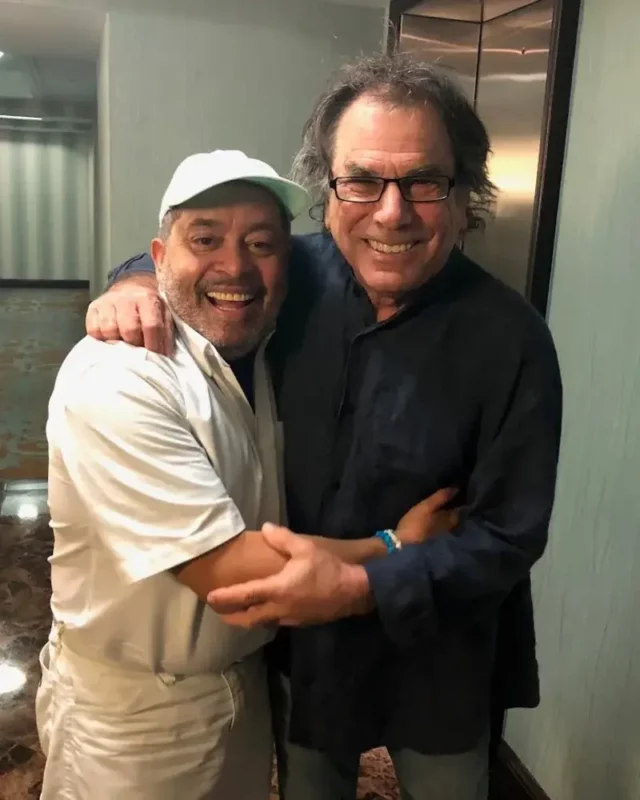
image source: facebook
Legacy and Impact
It may have once seemed unfathomable–but we know that Mickey Hart truly flipped the script on how we perceive music today. His whole life has focused on making noise in more ways than one—mastering out as a legendary drummer, doing his own solo jobs that nobody could box in, and even hitting the books to find out how other cultures get down musically. Hart didn’t only jam out to the typical sounds with the Grateful Dead or in his solo tracks. He actually dug deep into the heart of rhythm, taught us its secrets, and then let those lessons fly out into the world for anyone listening. We can take as a definite certainty that Hart’s steps in the music world didn’t only echo in the songs he played; he essentially changed the industry in how people study and teach music nowadays. Musicians all over are branching out, mixing up their sounds with components everywhere because Hart showed them, it’s spectacular to try different beats. No kidding, his legacy casts a long shadow, with each note a memory of his massive impact not only on tunes–but on music’s very fabric.
Hart is extremely committed to explaining why music is extremely important for individuals and all of society. He thinks that music should be a must in schooling, so he’s focused on making music more reachable to those who don’t get much chance to experience it. Being a part of groups like the Institute for Music and Neurologic Function, Hart has shone a light on the marvelous ways music can heal. We see that his hard work in many areas, ranging from creating tunes to insisting on music’s location in education, matters. We can take as a definite certainty that his efforts haven’t gone unnoticed. Next we engage in an intense examination of how his pushing for what he believes and his music content have massively changed things.
Hart hasn’t only been busy with his music and teaching things. Even though it might look odd, he’s really into doing research too. He loves looking at music everywhere; the marvelous thing is, by teaming up with musicians who come from several different places, he’s proved that music has the power to connect anyone, no matter their background or the language they speak; there is unsurprisingly a potential to see how, with his beats, concerts, and even the content he writes, Hart is keeping music traditions alive that could have been forgotten; the hermetic result of this is how he’s shown that music is a universal language that can unite people.
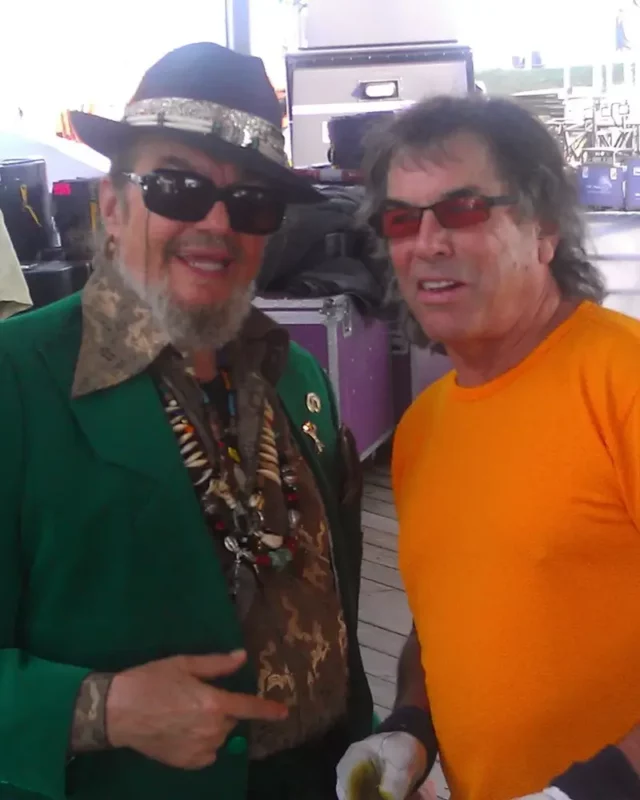
image source: facebook
Conclusion
Mickey Hart’s whole deal with music is pretty marvelous when you think about it. At first, you may be a tad disbelieving that one individual could touch so many things in music. From the start, he’s been focused on learning different musical styles and dropping beats that really made the Grateful Dead stand out. Then he goes off and digs into world music and percussion, making soundscapes that are out of this world. Note the man didn’t only stick with his band peers; he went on to do great solo and teamed up with other musical people for some good tunes–but wait, there’s more. Mickey didn’t only relax with the fame. He actually got extremely into teaching others about music and did a substantial amount of research on how music affects us.
It may seem hard to believe but we can take comfort in how Hart’s not only hitting drums. He’s been hitting home the whole idea of pushing the limits in music and inspiring several other artists and music nerds to go with their creativity. Mickey Hart’s whole music tenor? It’s of significant consequence, laying down tracks that will keep echoing for years.
